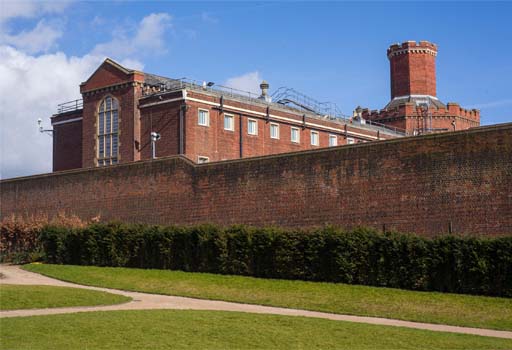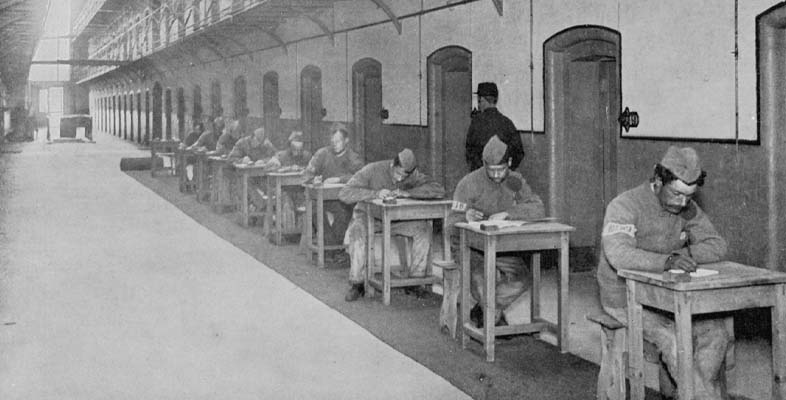7 Learning from history
Studying the past is, in itself, an enjoyable and useful intellectual activity. Becoming immersed in a different time and place feeds the imagination and stimulates curiosity. The study of a range of sources – primary (of the time) and secondary (what has subsequently been written about events) – provides exposure to different viewpoints. Assessing the value, contribution and biases of primary and secondary sources develops skills of critical analysis. All these things can help us to become more engaged and confident, not to mention more employable, citizens.
There are many who also argue that knowledge and understanding of past events and processes – an historical perspective – can deepen our understanding of particular phenomena or issues in the present and can aid decision-making about the future. The society we live in today is a product of the past. It is the outcome of processes which have unfolded over time and which continue to exert influence over our current condition (Tosh, 2008, p. 8).
Take, for example, the criminal justice systems which operate in each of the four nations in the UK today. It is inconceivable that the police forces, prosecution procedures and prisons which we see today could have been invented, entirely from scratch, in the present. Each element has evolved, over time, in response to changing conceptions of crime, new philosophies of punishment and unexpected events.

Studying the past challenges the idea that certain things have always been this way and are therefore impossible to change. Although prisons have a long history as places of confinement, it is only in the very recent past that they have been used as a form of punishment for those convicted of crime in the UK. You might remember from Session 1 that convicted criminals in the 1700s were more commonly sentenced to death or transportation, or endured other bodily punishments, such as branding or whipping. To what extent does this knowledge enable us to conceive of a society without prisons?
Studying the past can also reveal some surprising continuities, thereby challenging the presumed novelty of the present (Lawrence, 2019, p. 495). Perhaps you did not know before studying this course that there were schools in prisons during the 1800s in which accused and convicted criminals were taught reading, writing and arithmetic?
History presents us with ‘a vast reservoir of experience and information’ (Corfield, 2010, p. 2). Historical perspective encourages us to think again about the world around us, to ask different questions about our current circumstances, and to explore alternative solutions to contemporary problems.
Activity 4 Learning from the history of prison education
Over the last eight sessions, you have explored the provision of education in prisons during the 1800s. You have looked at the origins of prison education in the UK, the various ways in which education was provided, and its results. You have also looked at the emergence of statistics on prisoner literacy and interrogated some of the data. You have looked at how education in prisons was reshaped (or not) as a result of successive waves of penal reform.
You now have an opportunity to reflect on what you have learned. Here are some questions to guide you through this process:
- Has learning about the history of prison education given you new insights and understanding? Has it also changed how you think about prison education in the present?
- Did you learn anything unexpected in this course?
- Have you acquired any new knowledge or new perspectives on prisons and prison education through this course which could be used to inform debates about or the provision of education in prisons today?
- If you have acquired new knowledge or perspectives, what do you plan to do as a result?
Discussion
Hopefully, your studies have had some impact on your views of the value of prison education. Perhaps this course has strengthened some of your pre-existing beliefs. Maybe you have changed your mind altogether! Or perhaps this course has encouraged you to reflect on a subject – prison education – that you had not thought about before or had taken for granted.
Perhaps you were surprised to learn that there was a history of prison education which stretched back as far as the early 1800s, and that state-funded prison education predated state-funded universal and compulsory elementary education for children. If you are (or were previously) a prisoner, or if you work in the prisons sector, you might have been struck by the appearance of some familiar themes, including the difficulty of accommodating education in the prison timetable alongside other activities such as work, and the disruptions caused to education, for example, by transfers between prisons.
As for the application of new knowledge and new perspectives, you will have your own thoughts, but you might like to reflect on the following points:
- The intersections between different areas of social policymaking. The provision of education in prisons was as much, if not more than, a consequence of educational reform as of penal reform. The relationship between these two departments – or spheres more generally – continues and continues to be complicated. The impress of present-day educational policy continues to be evident in the curriculum nominally available to prisoners, from standard prison education courses (literacy and numeracy to Level 2), to GCSEs, A-Levels, vocational and professional qualifications, to higher education modules and qualifications. Yet, with few exceptions, prison education remains separate from mainstream education (separate providers, specialist staff, distinct communities of learners), and insights revealed by experiences of education within the prison typically don’t feed back into mainstream educational pedagogy and provision. This seems like a missed opportunity, for both mainstream and prison education.
- What is education within the context of the prison? Should it be a privilege or a right? Is it a necessity? Should education specifically aim to be reformative, or should it be restricted to instruction in key skills which prisoners could use, if they choose, to improve their mental and material condition? How can we unlock the transformative potential of education?
- The accommodation of education within the penal environment. This course has shown how education was moulded to fit within the time and space available in prisons. Compromises had to be made, often to the detriment of education. Prisons were (and are) places of punishment. The realities of imprisonment and the prioritisation of discipline ultimately limited access to education and hampered efforts made by prisoners to learn. Similar problems of access and delivery remain in prisons today. Unless these are properly addressed, and the purpose of the prison is reconsidered, education is unlikely to play a central role in the penal regime and to make a significant difference to the lives of more than a small proportion of the prison population.
- The gap between policy and its implementation at the level of the institution, even when prisons are under the control of one authority. This can work both for and against the provision of education in prisons. Even today, there is significant difference in what education prisoners have access to across the penal estate. At the same time, institutional autonomy can give rise to progressive and impactful initiatives.
- How to achieve meaningful reform in prisons. This course has illuminated the growing complexity of forces that have come to determine policy and practice in the penal sector. Legislators, administrators, prison officers, magistrates, lobbyists, social scientists, public opinion – all have a role to play, and because change has to be negotiated at each level, inertia (no change) is often the result.
We have a small favour to ask. We hope to use this OpenLearn course as part of an Impact Case Study for submission to the next Research Excellence Framework (REF) scheduled for 2027. REF provides an opportunity to showcase the work we do as historians at The Open University.
To do this, we need evidence of how your studies on this course might have changed your perspectives on prison education, prisons or the value of historical study more generally. We would be extremely grateful if you could send us your response to Activity 4 using this email address: Prison-Education-BOC@open.ac.uk [Tip: hold Ctrl and click a link to open it in a new tab. (Hide tip)] . You can simply copy and paste the text from the response box into an email. Please also tell us, if you are able and willing, if there is anything you plan to do as a result of your new knowledge and perspectives.
And, at the same time, feel free to give us any other feedback on the course.
Your name, email address and quote will be stored securely and only accessed by the course team. If we use your quote or feedback in the REF submission your name will only be used if you give permission. Your email address will only be used to contact you to ask for that permission. All data not used in the REF submission will be deleted by January 2028. If after emailing us you change your mind and would like to withdraw your feedback you can contact us at the same email address and your data will be deleted.
Many thanks, in advance, for your help. It is much appreciated!
